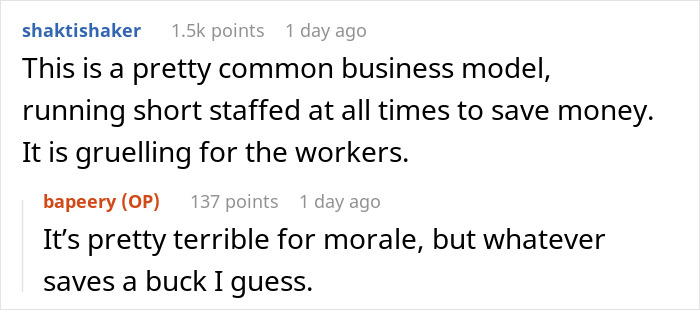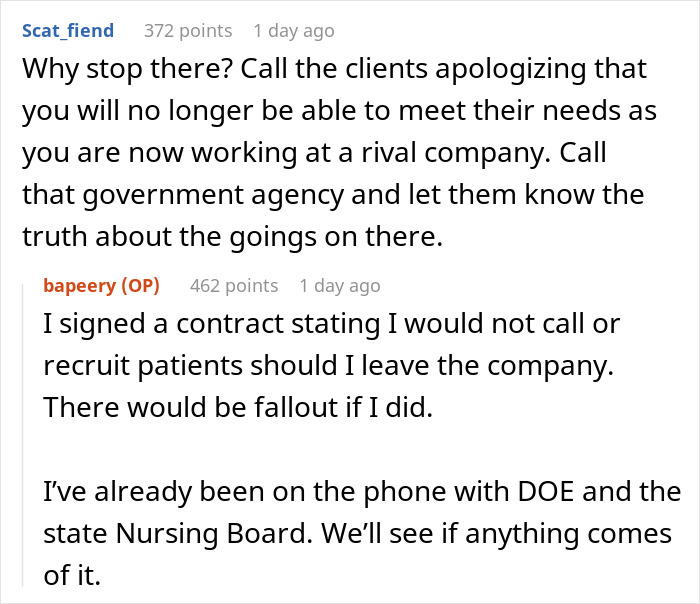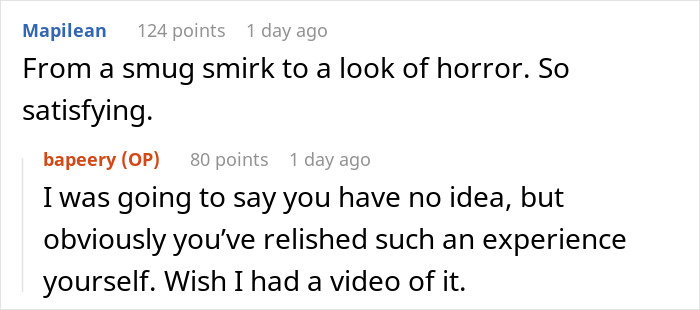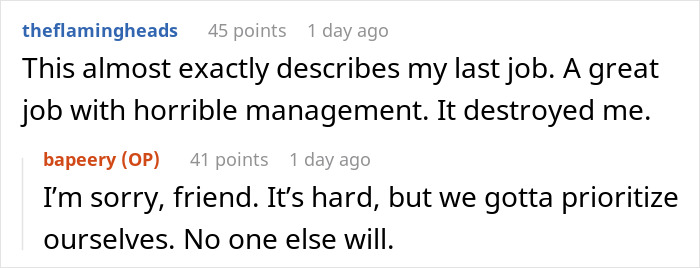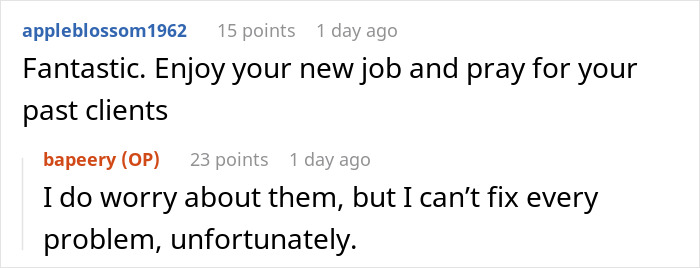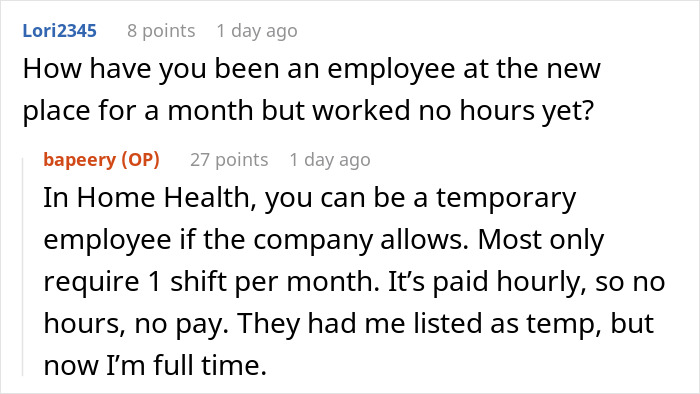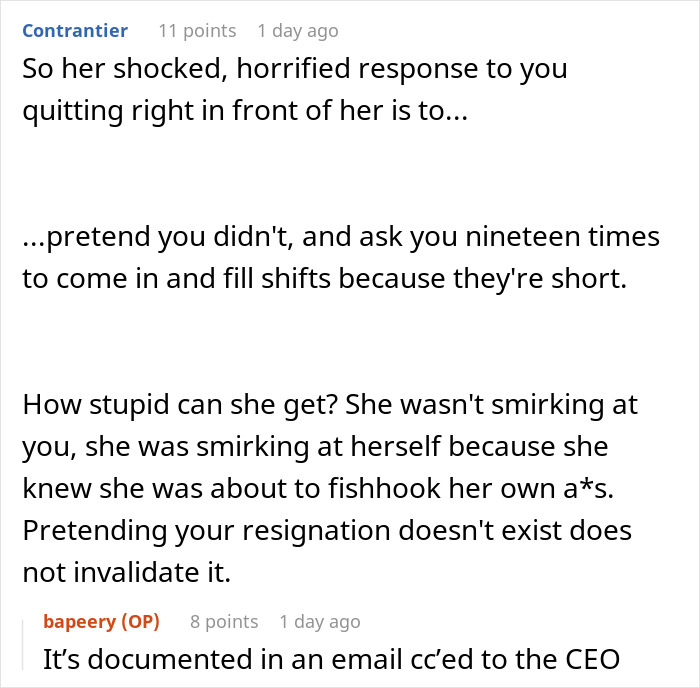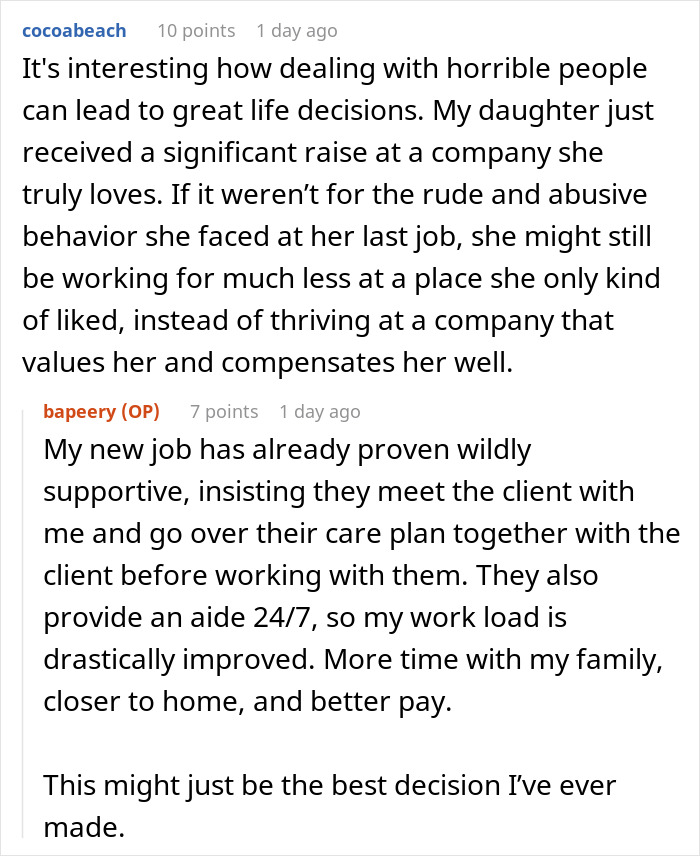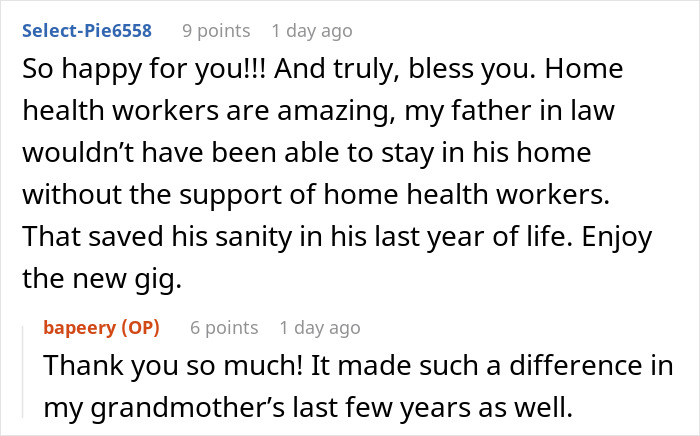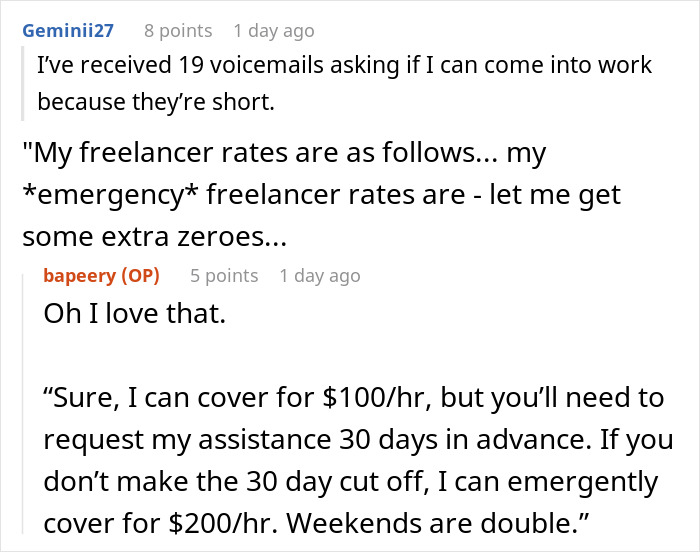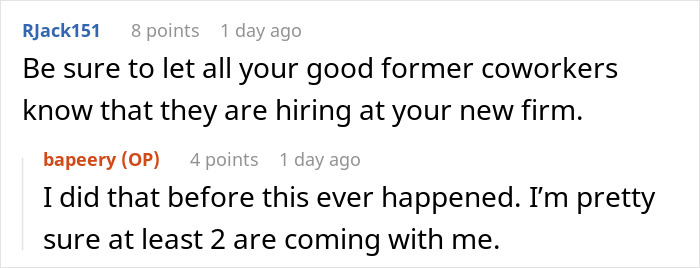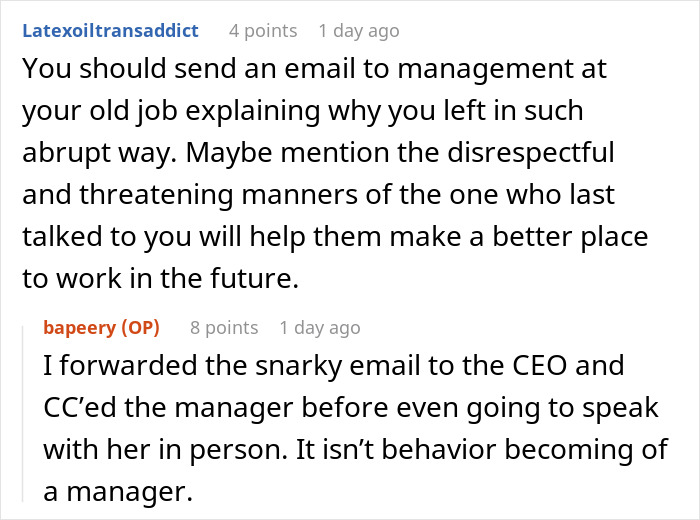Scheduling is often a headache in the healthcare industry, and when it’s done by incompetent managers, things can completely spiral out of control. In a post shared by u/Bapeery on r/MaliciousCompliance, we meet a dedicated home health worker who has gone above and beyond for their company. Over nine months, they picked up loads of shifts, worked doubles, and even saved the company from audit failures. However, when the employee asked for a few days off to go on a well-deserved family trip, they were accused of being selfish and their request was denied. As you can imagine, they just couldn’t let it slide.
For an employee’s hard work to pay off, their boss needs to recognize it

Image credits: Thirdman / Pexels (not the actual photo)
And this healthcare worker’s manager just wouldn’t do it
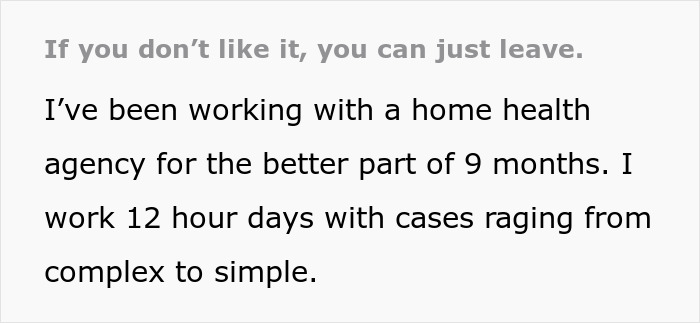
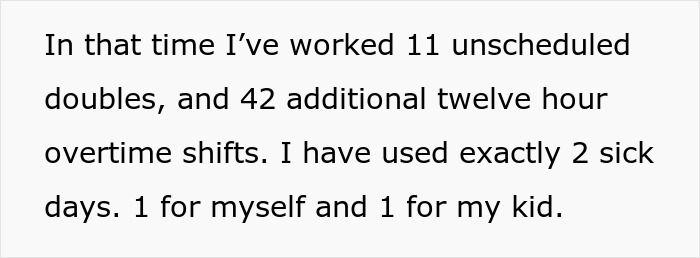
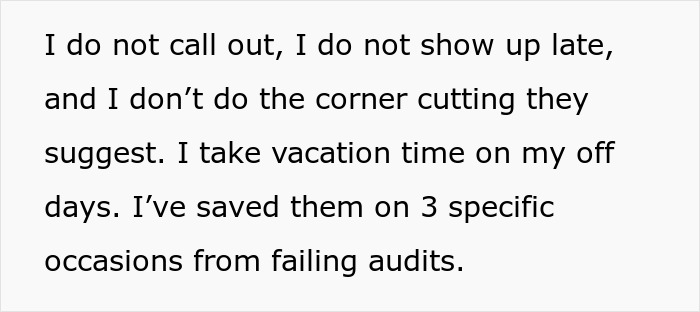
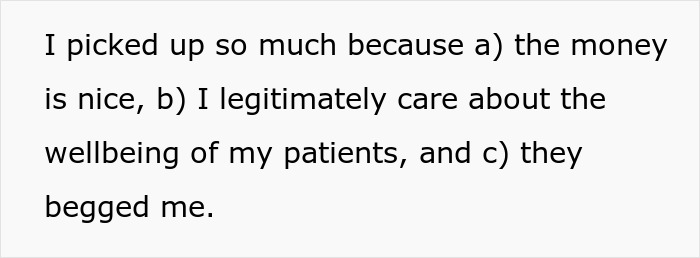
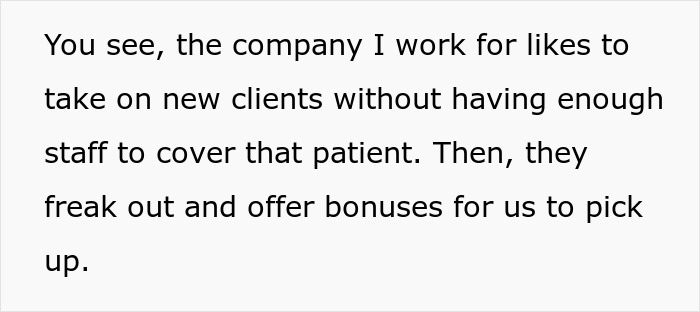


Image credits: Freepik (not the actual photo)
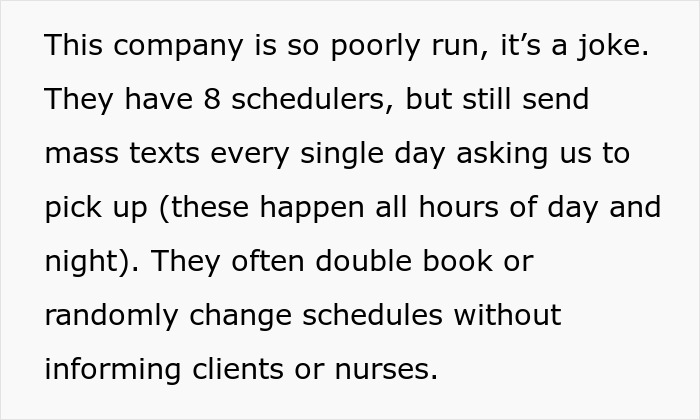
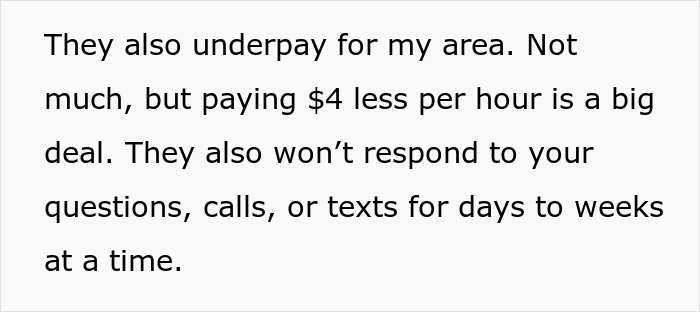
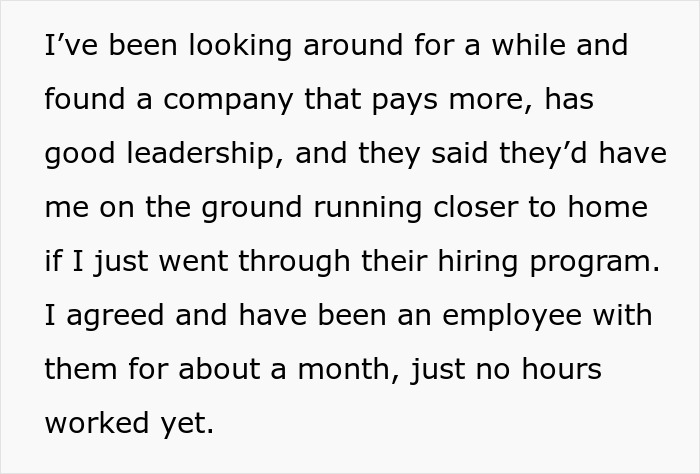

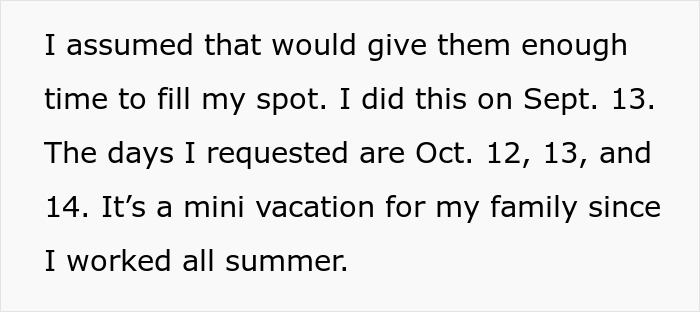
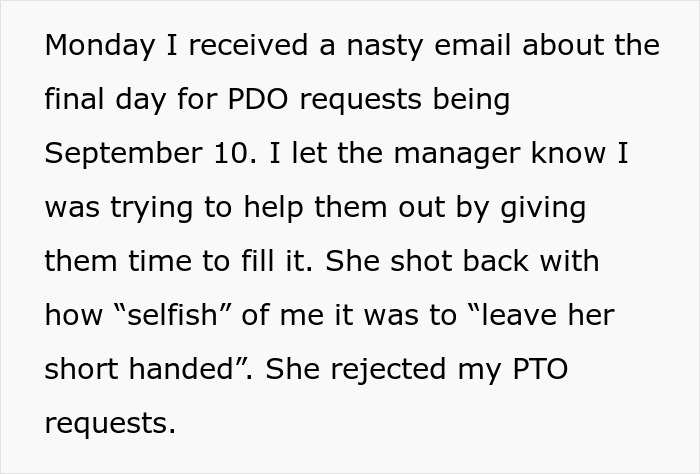

Image credits: Freepik / krakenimages (not the actual photo)
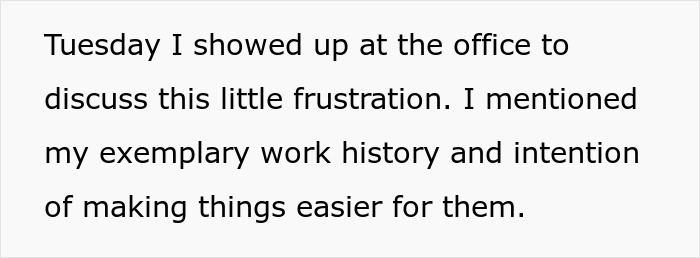
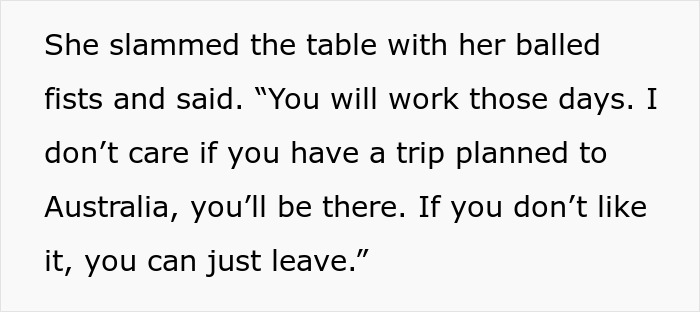


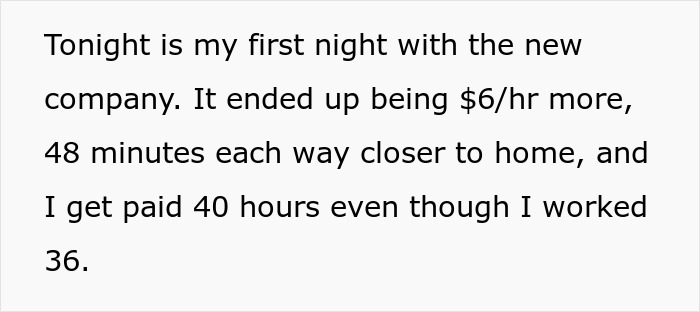

Image credits: bapeery

Image credits: Freepik (not the actual photo)
Leaders need to recognize that their employees need time off
According to executive coach Rebecca Zucker, who is also a founding partner at Next Step Partners, a leadership development firm, the impacts when you’re overwhelmed with work can include cognitive fatigue, difficulty concentrating, forgetfulness, and impaired problem-solving ability, among several other effects.
“Uncluttering your mind allows you to think more clearly and boosts creativity,” Zucker writes. “This can happen in both small and big ways while on vacation.”
In fact, research says that merely taking a walk, even if it’s inside on a treadmill, significantly increases creativity.
“Taking a vacation — and even just planning for it — can also improve your mood. In particular, many people carry a significant ‘sleep debt’ that often comes with work-related stress and anxiety,” Zucker continues. “Research shows that this lack of sleep can result in negative moods such as sadness, anger, frustration, and irritability, which can, in turn, result in more difficulty sleeping. Longer term, lack of sleep can also increase risk of dementia.”
A vacation provides the opportunity to reduce or eliminate this sleep deficit. According to the American Psychological Association, getting even 60 to 90 minutes more sleep a night can improve both memory and concentration.
Some 46% of American workers who receive paid time off from their employer – whether for vacations, doctor’s appointments or minor illnesses – take less than they are entitled to, according to a 2023 Pew Research Center survey. When asked why, about half of those who don’t take all their time off (49%) say they’d worry about falling behind at work if they took it.
From a company’s point of view, its employees’ days off are like preventative care. If not done regularly, it can lead to burnout, reduced productivity, and increased turnover, all of which can be more costly and disruptive in the long run.
As the story went viral, its author joined the discussion in the comments
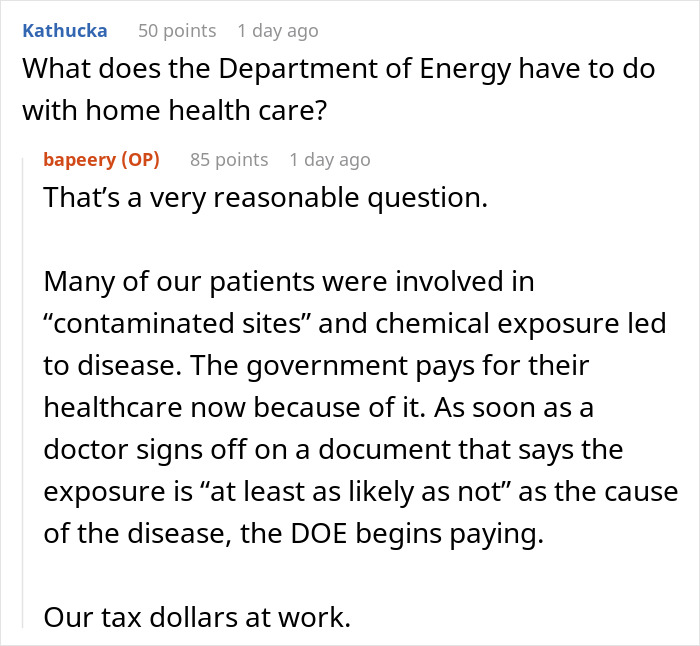
And they have received a lot of support
